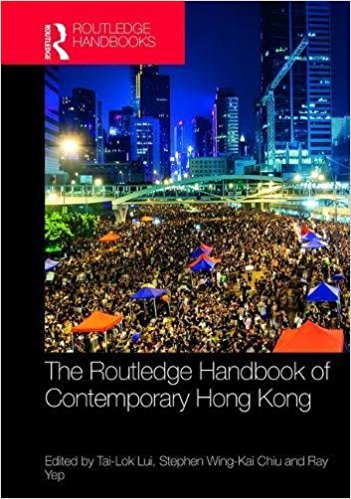- Featured Publications
Routledge Handbook of Contemporary Hong Kong

When Britain and China negotiated over the future of Hong Kong in the early 1980s, the main concern was primarily about the maintenance of the status quo. It was meant to be maintaining Hong Kong’s capitalist economy, upholding the rule of law, safeguarding freedom of speech, and retaining the existing way of life. As long as things were kept in the way they used to be, Hong Kong, which was expected to change from a British colony to a Special Administrative Region (SAR) in China on 1st July 1997, would be able to secure prosperity and stability. Few observers have anticipated sea changes in China in the years following the Sino-British Negotiations and their wider implications for China-Hong Kong relationship. The rise of China reshapes the parameters of Beijing-Hongkong dynamics: the economic role of Hong Kong has been changed, population flows between the two places increased drastically, and the balance of power has shifted towards China’s favour. New tensions and cleavages emerge; the Hong Kong agenda has been turned into one that few would have envisaged in the 1980s. Instead of being a story wherein the conflicts between capitalism and socialism unfolds, post-1997 Hong Kong is a case about a global city’s democratic transition within an authoritarian state and how a city within Asia encounters the rise of China.
This handbook introduces readers to social, economic, and political development in Hong Kong. The contributions allow the readers to identify the key features of Hong Kong society prior to its return to China and to grapple with changes in different domains of social life in the SAR since 1997. This will be most relevant to students and researchers who are studying Hong Kong but it will also be of interest to those who are working on China’s political development (particularly in the areas of nation building and unification) as well as those who are observing future political change in Taiwan.
